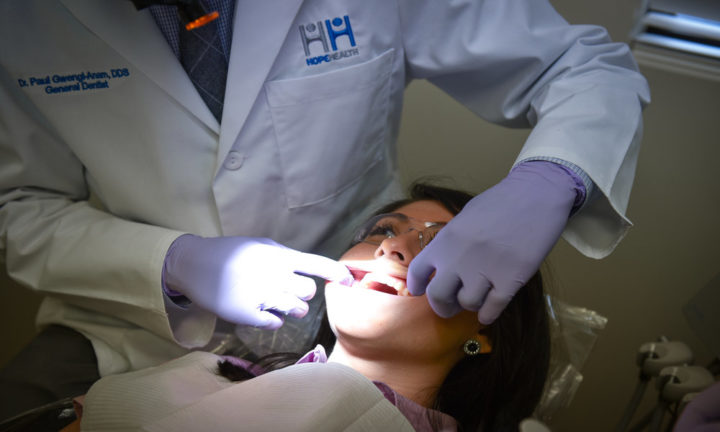Dental Care and Overall Health – The Connection

Dental diseases progress over time as different and more complex bacteria adhere to the teeth and the gums, eventually causing a variety of teeth problems. For example, poor oral health can contribute to gingivitis (gum disease), periodontitis (disease of the bone supporting teeth), bad breath, tooth decay, dental pain, loss of teeth, unhealthy smile and loss of self-confidence. Systemic diseases can affect the health of the mouth either directly or through common medications used to treat or manage the systemic conditions. Similarly, poor oral health could be an early indicator of how other body organs are functioning. As a result, your dentist may be the first to suspect certain health problems. So, where is the connection?
Here are a few health conditions and lifestyles that affect the body and how they may be linked to oral health.
Diabetes: In the mouth, diabetes increases the likelihood of developing dry mouth, gingivitis, periodontitis, and other infections. Individuals with uncontrolled type 2 diabetes (A1c greater than 8) have the highest levels of gingivitis compared to those without diabetes. In addition, people with type 2 diabetes are three times more likely to have periodontitis, a condition in which the bone supporting teeth is progressively lost. Diabetes also increases the chance of developing oral infections such as thrush and affects the outcome of dental extractions and other dental treatments since the disease slows wound healing.
Heart conditions: Oral bacteria may cause endocarditis, a rare infection of the heart. The bacteria in the mouth may find its way into the bloodstream and attach to the valves of the heart, which control blood flow. People considered at high risk are those with specific heart diseases present from birth, prosthetic valves, and those with a history of endocarditis. To decrease the chances of endocarditis, it is important to maintain good oral hygiene to eliminate dental diseases. Your dentist or primary care provider may also recommend antibiotics before your dental visits.
High blood pressure and stroke: Dental diseases have common risk factors with stroke and high blood pressure: smoking, diabetes, and poor diet. In the mouth, smoking slows healing time, increases likelihood of oral cancer and periodontitis, and is a significant risk factor for the failure of dental implants. Despite the inability to reverse the bone loss around teeth due to smoking, progression of periodontitis can significantly decrease within a year after smoking cessation. Local anesthetics used in dental offices may increase blood pressure as well. Therefore, compliance with your primary care provider’s recommendations is important to avoid complications with your dental treatments.
Lung diseases: Pneumonia may occur in high risk individuals, such as those in long-term care facilities and those with poor immune response, due to poor dental hygiene including unclean dentures. The process is not fully understood, but heavy accumulation of bacteria in the mouth may increase susceptibility to lung infections under the right conditions. In addition, chronic obstructive pulmonary disease (COPD) shares a common risk factor with dental diseases: smoking. The drugs used to treat these conditions may cause dry mouth, which, in turn, can lead to tooth decay and bad breath.
In general, maintaining good oral hygiene is simple, should be routine, and goes a long way to promoting your overall health. Brushing for two minutes twice a day and flossing once a day is the general recommendation. If lacking teeth, brush the gums and scrub dentures. It is important to maintain your regular dental and medical visits as recommended to maintain or improve your general health.
Dr. Paul Gwengi-Anam provides dental care services to HopeHealth patients at the Medical Plaza in Florence and is fluent in Swahili and Luo in addition to English.
This article was first published in the Florence Morning News in the Health & Wellness Section on November 19, 2017 and on SCnow.com.